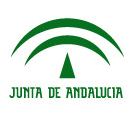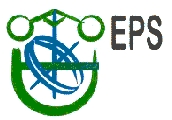Barnes, T., Desmarais, M., Romero, C., & Ventura, S. (Eds.) Educational Data Mining 2009: 2nd International Conference on Educational Data Mining, Proceedings. Cordoba, Spain. July 1-3, 2009.
All the files linked in this page are in PDF format.
Full Proceedings
Download entire conference proceedings from here (~11MB).Best Paper
Steven Ritter, Thomas Harris, Tristan Nixon, Daniel Dickison, R. Charles Murray and Brendon Towle. Reducing the Knowledge Tracing Space. [pdf]Best Student Paper
Zachary Pardos and Neil Heffernan. Determining the Significance of Item Order In Randomized Problem Sets. [pdf]Other Best Student Paper Nominee
Arnon Hershkovitz and Rafi Nachmias. Consistency of Students' Pace in Online Learning. [pdf]All Conference Regular Papers
Elizabeth Ayers, Rebecca Nugent and Nema Dean. A Comparison of Student Skill Knowledge Estimates. Pages 1-10. [pdf]Ryan Baker. Differences Between Intelligent Tutor Lessons, and the Choice to Go Off-Task. Pages 11-20. [pdf]
Dror Ben-Naim, Michael Bain and Nadine Marcus. A User-Driven and Data-Driven Approach for Supporting Teachers in Reflection and Adaptation of Adaptive Tutorials. Pages 21-30. [pdf]
Javier Bravo Agapito, Sergey Sosnovsky and Alvaro Ortigosa. Detecting Symptoms of Low Performance Using Production Rules. Pages 31-40. [pdf]
Gerben Dekker, Mykola Pechenizkiy and Jan Vleeshouwers. Predicting Students Drop Out: A Case Study. Pages 41-50. [pdf]
Mingyu Feng, Joseph Beck and Neil Heffernan. Using Learning Decomposition and Bootstrapping with Randomization to Compare the Impact of Different Educational Interventions on Learning. Pages 51-60. [pdf]
Yue Gong, Dovan Rai, Joseph Beck and Neil Heffernan. Does Self-Discipline impact students’ knowledge and learning? Pages 61-70. [pdf]
Arnon Hershkovitz and Rafi Nachmias. Consistency of Students' Pace in Online Learning. Pages 71-80. [pdf]
Tara Madhyastha and Steven Tanimoto. Student Consistency and Implications for Feedback in Online Assessment Systems. Pages 81-90. [pdf]
Ryo Nagata, Keigo Takeda, Koji Suda, Junichi Kakegawa and Koichiro Morihiro. Edu-mining for Book Recommendation for Pupils. Pages 91-100. [pdf]
Rebecca Nugent, Elizabeth Ayers and Nema Dean. Conditional Subspace Clustering of Skill Mastery: Identifying Skills that Separate Students. Pages 101-110. [pdf]
Zachary Pardos and Neil Heffernan. Determining the Significance of Item Order In Randomized Problem Sets. Pages 111-120. [pdf]
Philip I Pavlik Jr., Hao Cen and Kenneth R. Koedinger. Learning Factors Transfer Analysis: Using Learning Curve Analysis to Automatically Generate Domain Models. Pages 121-130. [pdf]
David Prata, Ryan Baker, Evandro Costa, Carolyn Rose and Yue Cui. Detecting and Understanding the Impact of Cognitive and Interpersonal Conflict in Computer Supported Collaborative Learning Environments. Pages 131-140. [pdf]
Dovan Rai, Yue Gong and Joseph Beck. Using Dirichlet Priors to Improve Model Parameter Plausibility. Pages 141-150. [pdf]
Steven Ritter, Thomas Harris, Tristan Nixon, Daniel Dickison, R. Charles Murray and Brendon Towle. Reducing the Knowledge Tracing Space. Pages 151-160. [pdf]
Vasile Rus, Mihai Lintean and Roger Azevedo. Automatic Detection of Student Mental Models During Prior Knowledge Activation in MetaTutor. Pages 161-170. [pdf]
Marián Šimko and Maria Bielikova. Automatic Concept Relationships Discovery for an Adaptive E-course. Pages 171-179. [pdf]
John Stamper and Tiffany Barnes. An Unsupervised, Frequency-based Metric for Selecting Hints in an MDP-based Tutor. Pages 180-189. [pdf]
Cesar Vialardi Sacin, Javier Bravo Agapito, Leila Shafti and Alvaro Ortigosa. Recommendation in Higher Education Using Data Mining Techniques. Pages 190-199. [pdf]
All Conference Posters and Student Papers
Safia Abbas and Hajime Sawamura. Developing an Argument Learning Environment Using Agent-Based ITS (ALES). Pages 200-209. [pdf]Antonio R. Anaya and Jesus G. Boticario. A Data Mining Approach to Reveal Representative Collaboration Indicators in Open Collaboration Frameworks. Pages 210-219. [pdf]
Dave Barker-Plummer, Richard Cox and Robert Dale. Dimensions of Difficulty in Translating Natural Language into First-Order Logic. Pages 220-229. [pdf]
Suleyman Cetintas, Luo Si, Yan Ping Xin and Casey Hord. Predicting Correctness of Problem Solving from Low-level Log Data in Intelligent Tutoring Systems. Pages 230-239. [pdf]
Ming Feng and Joseph Beck. Back to the Future: A Non-automated Method of Constructing Transfer Models. Pages 240-249. [pdf]
Sharon Hardof-Jaffe, Arnon Hershkovitz, Hama Abu-Kishk, Ofer Bergman and Rafi Nachmias. How do Students Organize Personal Information Spaces? Pages 250-258. [pdf]
Cecily Heiner and Joseph Zachary. Improving Student Question Classification. Pages 259-268. [pdf]
Jack Mostow and Joseph Beck. What, How, and Why should Tutors Log? Pages 269-278. [pdf]
Mykola Pechenizkiy, Nikola Trcka, Ekaterina Vasilyeva, Wil van der Aalst and Paul De Bra. Process Mining Online Assessment Data. Pages 279-288. [pdf]
José Ramón Quevedo and Elena Montañés. Obtaining Weights of a Rubric Through a Pairwise Learning Model When the Assessment Process Involves More than One Lecturer. Pages 289-298. [pdf]
Cristobal Romero, Sebastián Ventura, Enrique García and Carlos de Castro. Collaborative Data Mining Tool for Education. Pages 299-308. [pdf]
Amelia Zafra and Sebastián Ventura. Predicting Student Grades in Learning Management Systems with Multiple Instance Genetic Programming. Pages 309-318. [pdf]
Lukáš Zoubek and Michal Burda. Visualization of Differences in Data Measuring Mathematical Skills. Pages 319-324. [pdf]





